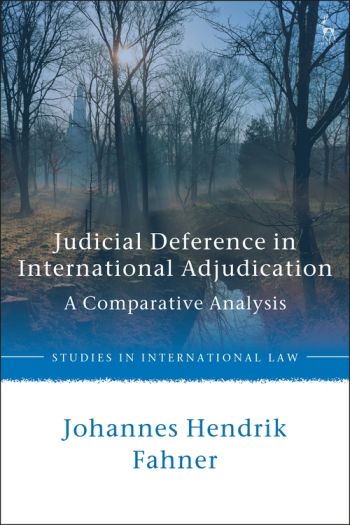
International adjudicators are more and more often requested to pass judgement on matters that are traditionally considered to fall within the domestic jurisdiction of States. Especially in the fields of human rights, trade, and investment law, international tribunals are now commonly required to evaluate decisions of national authorities that have been made in the due course of democratic procedures and public deliberation. This raises the question of whether international adjudicators should review such decisions de novo or whether they should give deference to domestic authorities. In many national legal orders, courts do not exercise de novo review with regard to legislative and administrative decisions, as this would allow them to supplant the powers of other branches of government. Instead, courts exercise only deferential forms of review, limiting the intensity of their review by giving special weight to the determinations made by the institution under review. This book investigates whether international courts and tribunals have also adopted deferential standards of review and whether they should do so.